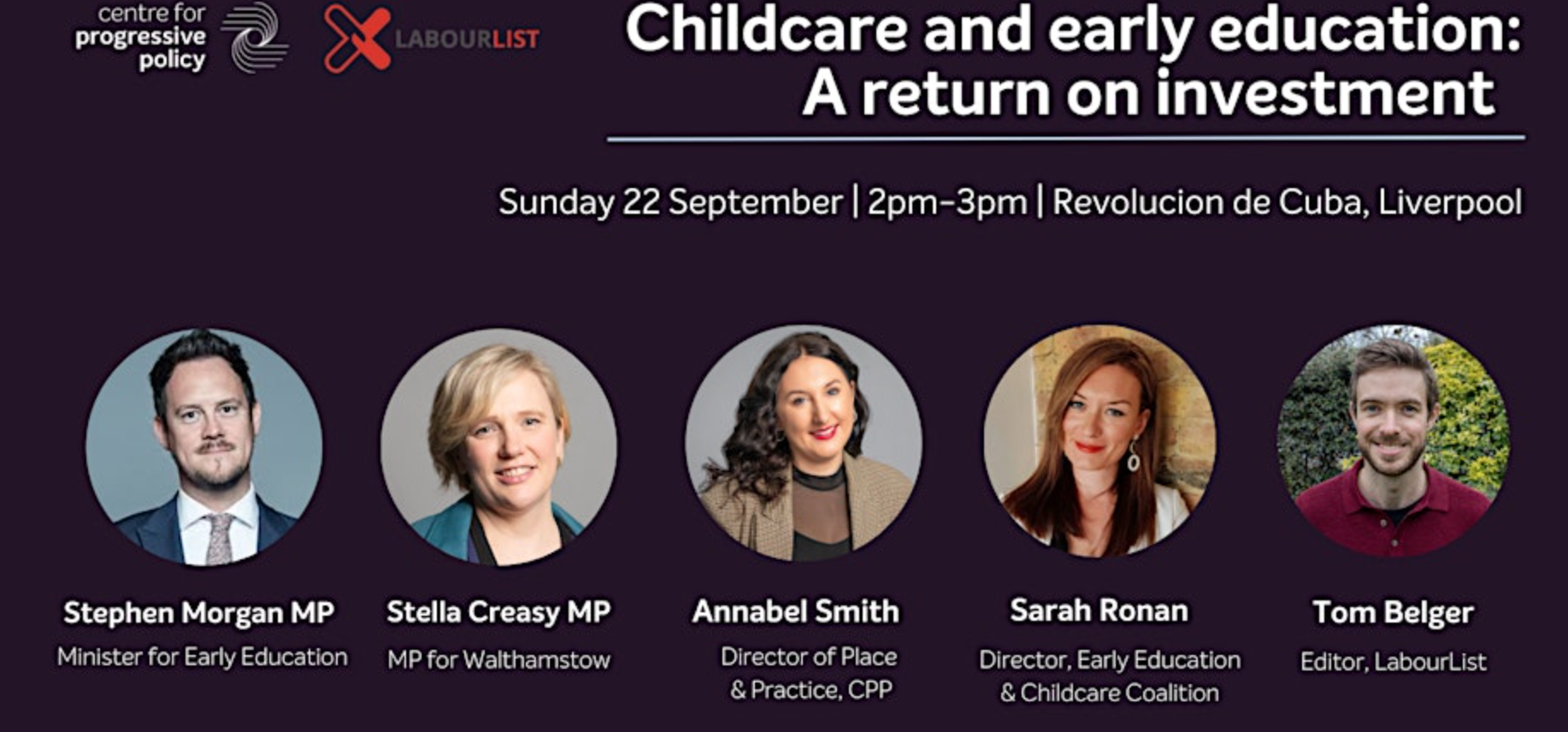
The government is looking at how to deliver its mission for growth in every part of the country, in the context of a £22bn fiscal black hole. Tackling so-called ‘childcare deserts’ – areas where quality, affordable childcare is not accessible – should be a focus.
Repurposing some of the funding allocated for the Conservative-led expansion to target areas of higher deprivation could be one prudent approach for the government to take to maximise the impact on delivery of its missions on growth and opportunity.
An expanded state-subsidised childcare offer has seen cross-party support in recent years for good reason. It sets up children for positive educational and life outcomes, helping them to fulfil their potential.
It supports economic productivity and gender equality by enabling parents, particularly mums, back into work and to progress and make choices in their careers. And it ensures businesses have a consistent and reliable workforce.
Why childcare matters
It is well documented that the UK has some of the highest childcare costs in the OECD, paired with among the lowest levels of public spending. At the Centre for Progessive Policy, we have long made case that high quality, widely available childcare and early years provision is economic infrastructure, vital for growth.
We also work with places to deliver this on the ground through our Inclusive Growth Network. Our research has estimated that the UK’s lack of access to good quality, affordable childcare costs our economy over £27bn annually, or about 1% of GDP, due to women’s reduced workforce participation.
Before the election, the political salience of this issue saw both Labour and the Conservatives commit to a significant expansion of government subsidies for childcare. On current phased plans, by September 2025 working parents with children aged nine months to four years will be able to claim 30 hours of government-subsidised childcare a week over 38 weeks of the year.
This is an ambitious policy and, as the government is keen to stress, fiscal constraints are tight. It must focus on targeting further childcare and early years interventions to areas of high deprivation, paired with a wider offer of family support. Labour has already signalled commitment to tackling childcare deserts, where there are three or more children for every early years place. Rolling out early years provision in unused classroom spaces, and extending wraparound childcare for over 5s, are sensible moves.
But we must also look at the wider support and advice services families need to thrive.
The last Labour government’s Sure Start policy, which provided high quality wraparound early years and health support for families with children under five, had proven positive long-term impacts on outcomes for families. Research from the IFS has highlighted return on investment through educational outcomes alone – this would be even greater when considering positive impacts on physical health and parental employment.
But the world has changed since the introduction of Sure Start in 1998.
The world after Sure Start
The make-up of our labour market and a culture of undervaluing the sector means we already face a childcare workforcee crisis. CPP’s own analysis has found that the planned rollout of childcare cost subsidies will lead to a 52% increase in demand for childcare for under-2s by late 2025 – equivalent to 27,800 additional full-time staff.
This recruitment challenge is unevenly spread, with areas of higher deprivation across England – parts of the Midlands, Hull, and poorer outer London boroughs – facing the biggest challenges.
But there are also opportunities in today’s new world, not least through the role of devolution and combined authorities, which I have seen in practice through my own work with Liverpool City Region. Through harnessing a mix of formal powers around adult education and skills, and its informal brokering role, the combined authority has shown major innovation in its efforts to improve recruitment, retention and professional development in the sector.
This has been led by Mayor Steve Rotheram’s recognition of childcare as a vital economic asset for the region. An expanded pilot to upskill the workforce using adult education powers, delivering skills courses at flexible times that suits learners’ needs, transferring unspent levy from large businesses to smaller childcare providers to secure new apprentices, and working with partners including local football clubs to improve gender diversity in the sector are just some of the innovations the combined authority is implementing.
READ MORE: Sign up to our must-read daily briefing email on all things Labour
Crucially, it has been effectively able to broker relationships between national and local government: a shining example of the value combined authorities can add.
This has included working with job centres to ensure careers coaches are well equipped to promote early years education as a fulfilling career path. Successful childcare reform will need to see national government working hand in hand with places as delivery partners.
After 14 years of austerity, the narrative of ‘immediate pain for long term gain’ is wearing thin among the electorate.
Ensuring childcare and early years education is available to the people and places who need it most, learning from what has worked in the past and in places that are innovating, is a path to delivering tangible improvements to people’s lives while growing our economy.
SHARE: If you have anything to share that we should be looking into or publishing about this story – or any other topic involving Labour– contact us (strictly anonymously if you wish) at [email protected].
SUBSCRIBE: Sign up to LabourList’s morning email here for the best briefing on everything Labour, every weekday morning.
DONATE: If you value our work, please donate to become one of our supporters here and help sustain and expand our coverage.
PARTNER: If you or your organisation might be interested in partnering with us on sponsored events or content, email [email protected].





More from LabourList
Scottish Parliament elections 2026: Full list of Labour candidates for Holyrood
‘As metro mayors gain power, Labour must tighten political accountability’
Letters to the Editor – week ending 22 February 2026